Service Dogs
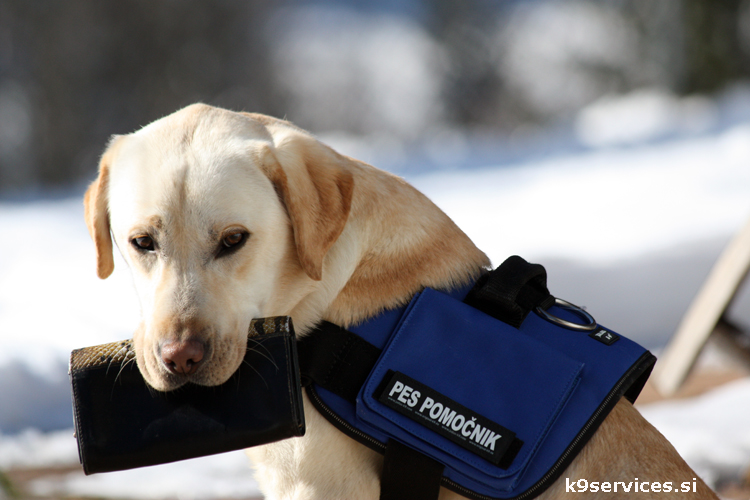
Mobility Assistance
Pull open heavy doors and drawers, close drawers and doors. Retrieve accidentally dropped items; get the telephone, newspaper, carrying the groceries, getting mail, and medications. Specialty tasks such as pulling a wheelchair, turning lights on and off, assisting with getting dressed, bracing for transfers and stability, go get help/assistance from another person, and most importantly, providing constant companionship.
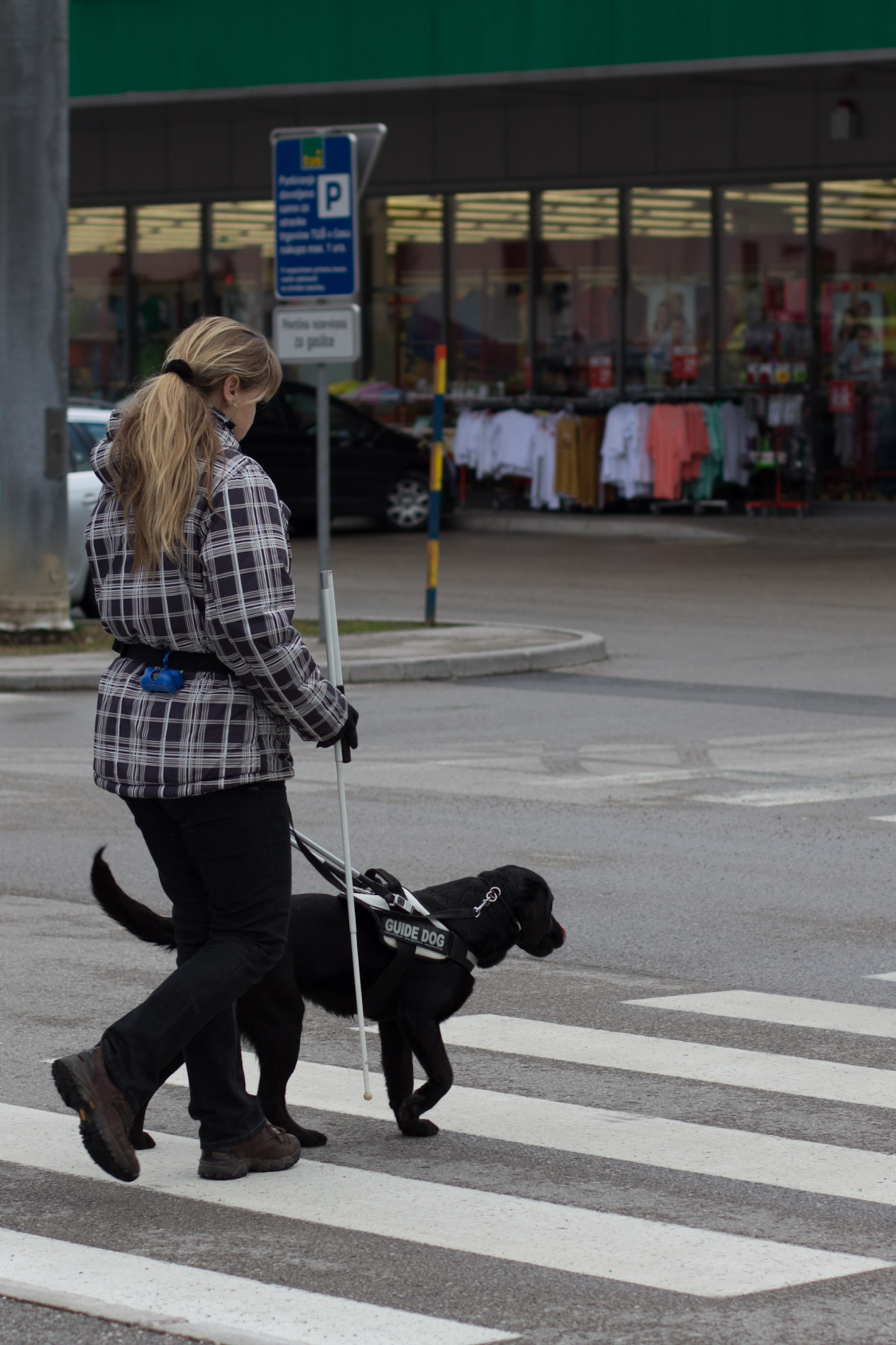
Guide dog
Keep on a direct route, ignoring distractions such as smells, other animals and people. Maintain a steady pace, to the left and just ahead of the handler. Stop at all curbs until told to proceed. Turn left and right, move forward and stop on command. Recognize and avoid obstacles that the handler won't be able to fit through (narrow passages and low overheads). Stop at the bottom and top of stairs until told to proceed. Bring the handler to elevator buttons. Lie quietly when the handler is sitting down. Help the handler to board and move around buses, subways and other forms of public transportation. Obey a number of verbal commands.
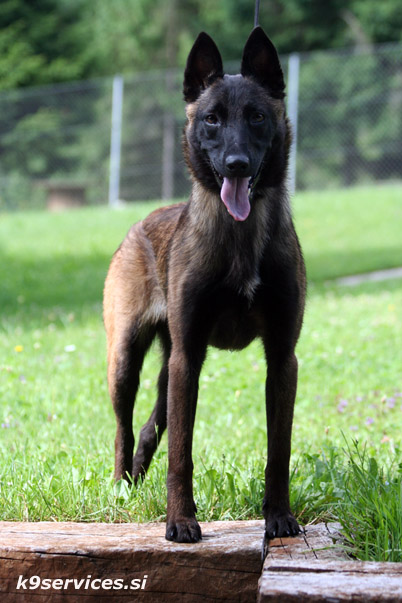
Hearing assistance
Alert owners to emergency devices, smoke or carbon dioxide detectors, door knocks, a baby’s cry, strange noises, alarm clocks, telephones, the person’s name being called, and other trained special sounds. Pick up items.
Allergen detection
Dog to detect gluten (a wheat, rye, and barley protein), shellfish proteins, and ascorbic acid. Assists his owner by checking areas for traces of nuts—especially peanuts, walnuts, and cashews—and giving a discreet pre-alert whenever any of these allergens are present.
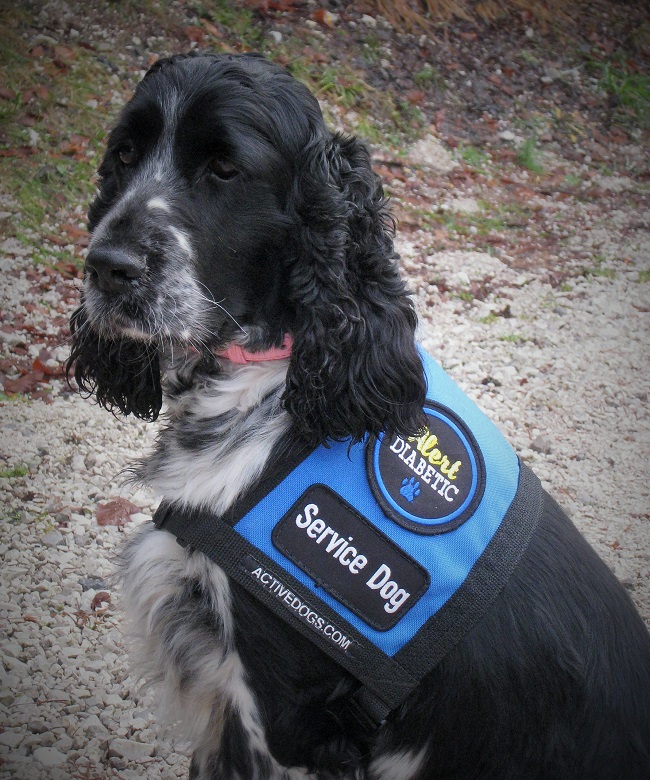
Diabetes alert
Medical Prediction Dogs will alert the person to their changing medical condition low blood sugar condition etc. This allows the person to get help or put him or herself in a safe place. Medical Response dogs will seek help from a neighbor, bark to call attention, or dial emergency medical personnel by activating a remote calling device.
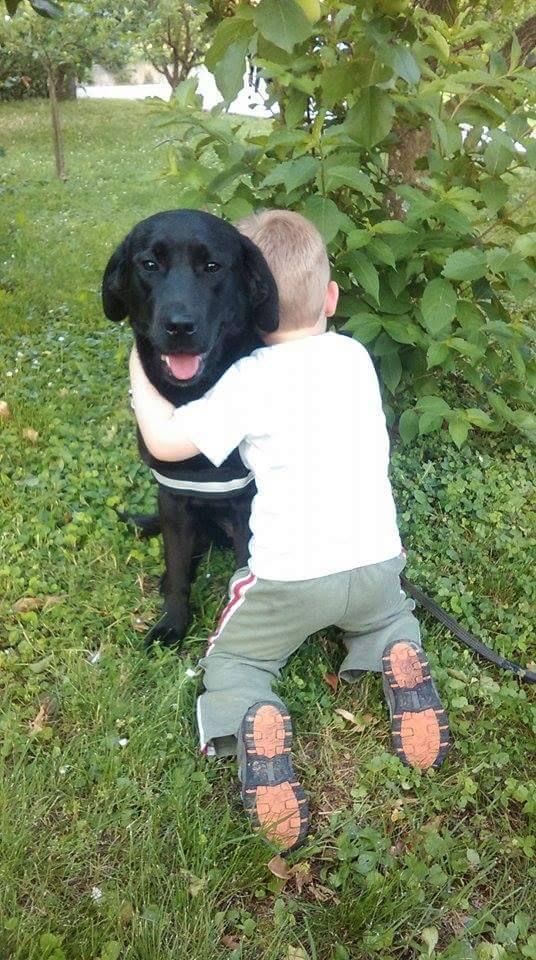
Autism assistance
An autism assistance dog or autism service dog is an assistance dog trained to assist an autistic person manage their disability and live more independently. An autism service dog, for example, can accompany a child to decrease anxiety during medical or dental visits, school activities, shopping and travel. Some autism service dogs are trained to recognize and gently interrupt self-harming behaviors or help de-escalate an emotional meltdown.
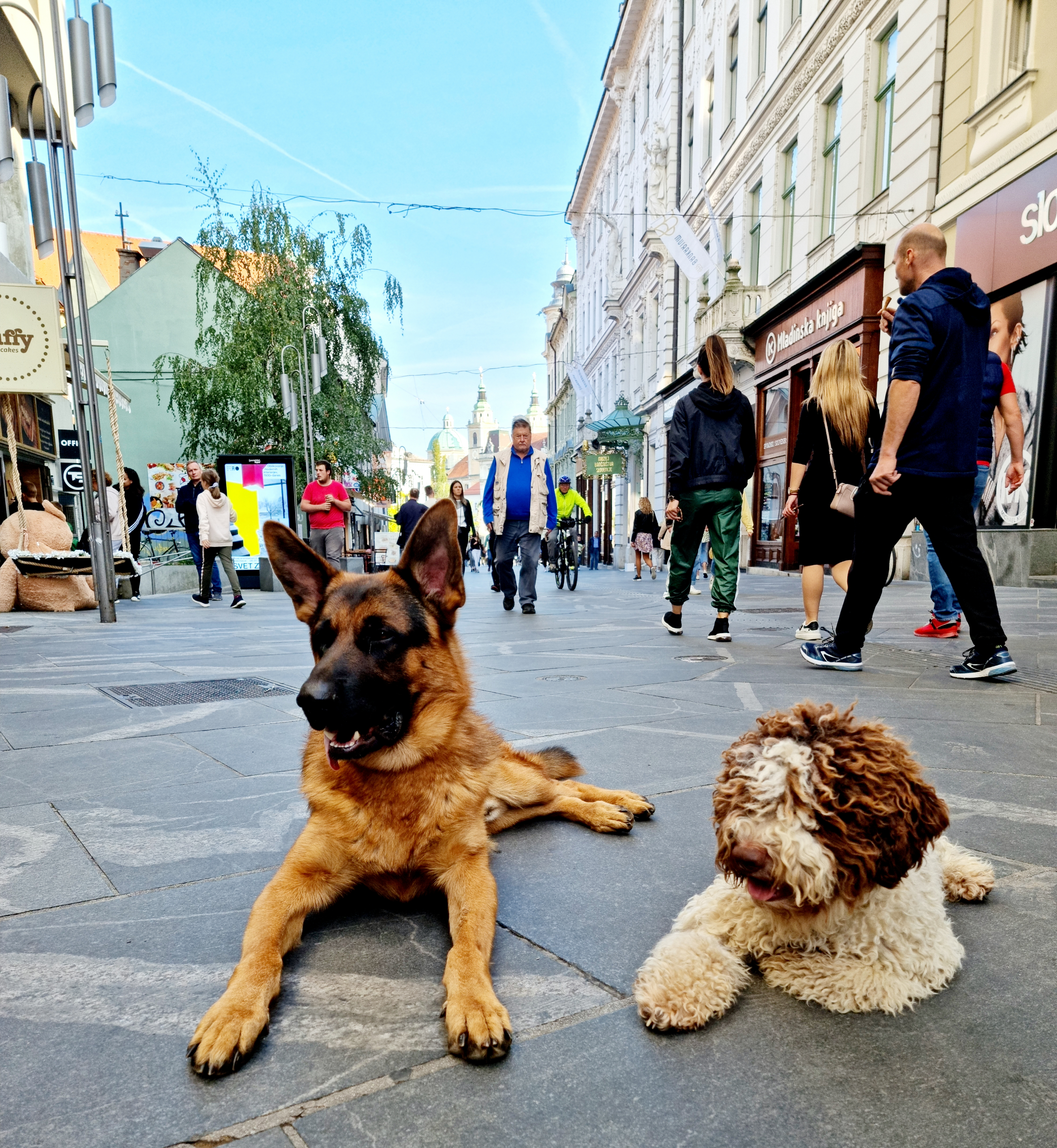
Seizure alert
Seizure alert dogs are specially trained to warn their owner before a seizure starts, so they can get help or move to somewhere safe.
Interested in our service dogs? contact us